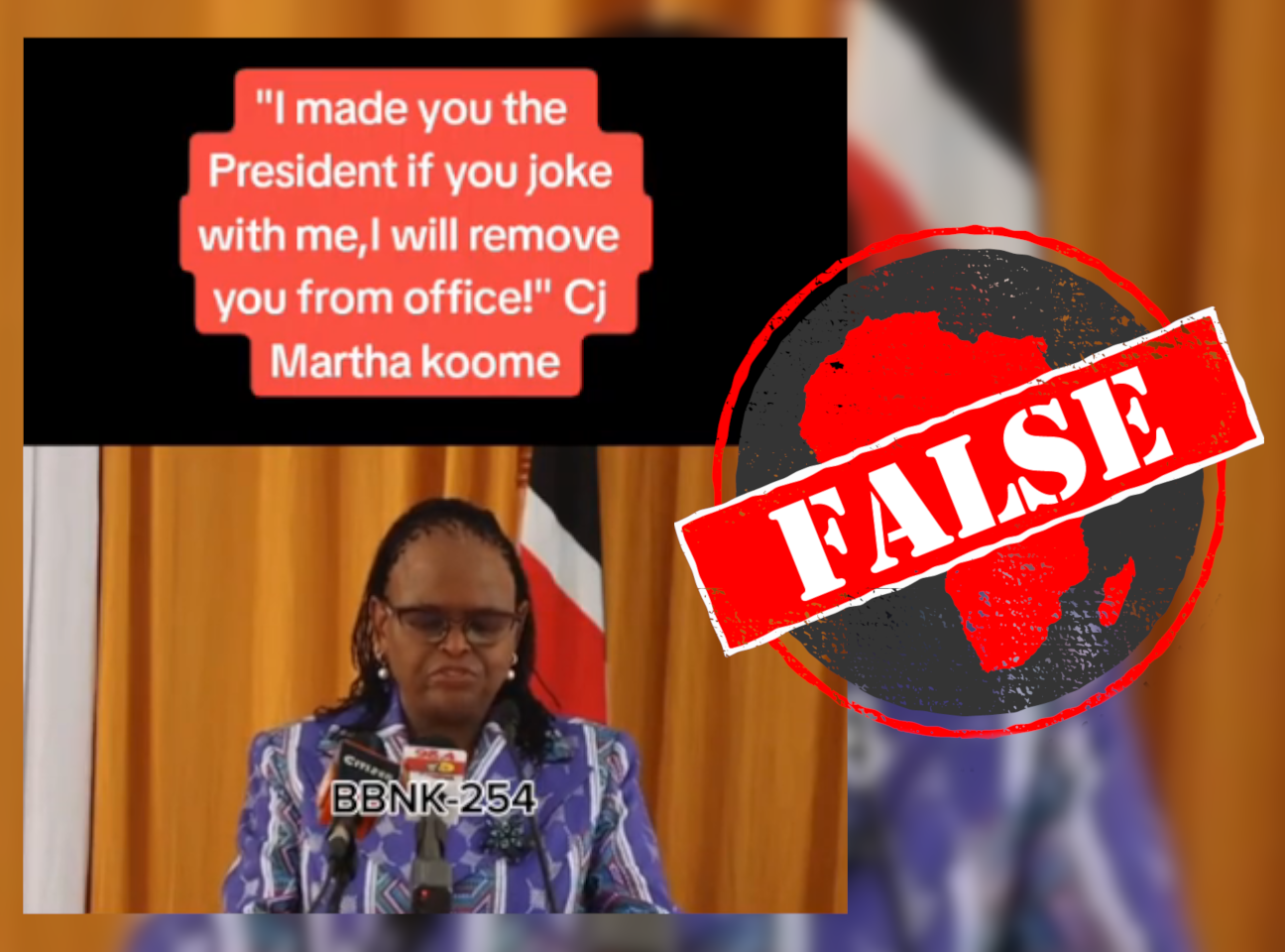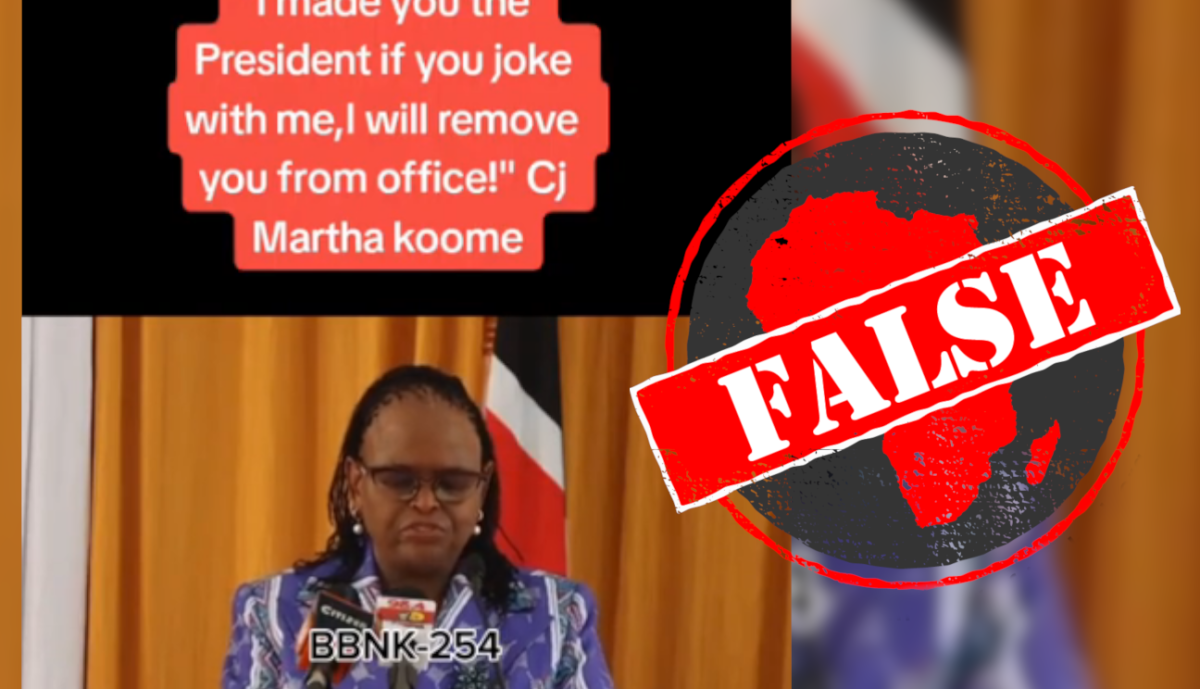IN SHORT: Following the Kenyan executive's recent criticism of the judiciary, a TikTok video went viral with captions claiming to be remarks by chief justice Martha Koome, appearing to attempt to intimidate president William Ruto. But the judge did not say those words.
A video posted on video-sharing app TikTok in mid-January 2024 shows Kenya’s chief justice, Martha Koome, speaking at an event.
It has a caption that reads: “‘I made you the president. If you joke with me, I will remove you from office!’ CJ Martha Koome.”
The video has received over 11,000 likes, 800 comments, and has been shared over 1,000 times.
But did Koome really make this incendiary statement?

Ruto and the Kenyan judiciary
In the run-up to Kenya’s 2022 general elections, and after his victory, president William Ruto committed to strengthening and respecting the judiciary. Shortly after taking office, he appointed six judges who had previously been rejected by his predecessor over unspecified integrity concerns.
But in 2023, Ruto appeared to change his tune when he launched attacks on the judiciary, accusing judges of corruption. This was after the courts had temporarily suspended the implementation of the Finance Act, a key piece of his government's legislation.
He also made inflammatory remarks. For example, a billionaire business executive withdrew all his court cases involving a leading sugar company after being publicly threatened by the president. Ruto’s comments were criticised by rights groups.
The Law Society of Kenya also criticised further comments made by Ruto later in the year when he appeared to threaten those who opposed the housing levy in court, another key piece of legislation for his government.
Intensified attacks on judges
In January 2024, Ruto stepped up his verbal attacks on the judiciary, suggesting that he would not obey court rulings. These comments led to public outrage and criticism, including from opposition leaders, and a peaceful protest held by lawyers.
The Kenyan section of the International Commission of Jurists also issued a public statement condemning the attacks. It was in the wake of these latest attacks that the chief justice made her public response.
But did Koome say that she “made” Ruto president and that she could remove him? This is in the context that Koome was the head of the supreme court that upheld Ruto's election victory after it was challenged.
Video caption misleading
The video clip shows Koome's speech as she presided over the outgoing chief registrar's handover ceremony on 12 January.
In her speech, the chief justice said that the judiciary is strongly opposed to all forms of corruption. She urged anyone with evidence of corruption or misconduct by judges to use the proper legal channels to report it.
She also said the judiciary would not be intimidated. She urged Kenyans to remain vigilant and protect the hard-won gains of the constitution.
Koome did not claim that she had put Ruto in office or that she could remove him. Such a statement would be highly unprofessional and would therefore be widely reported. But there is no credible evidence to support the claim that she made this statement. It is false.
Republish our content for free
For publishers: what to do if your post is rated false
A fact-checker has rated your Facebook or Instagram post as “false”, “altered”, “partly false” or “missing context”. This could have serious consequences. What do you do?
Click on our guide for the steps you should follow.
Publishers guideAfrica Check teams up with Facebook
Africa Check is a partner in Meta's third-party fact-checking programme to help stop the spread of false information on social media.
The content we rate as “false” will be downgraded on Facebook and Instagram. This means fewer people will see it.
You can also help identify false information on Facebook. This guide explains how.




Add new comment